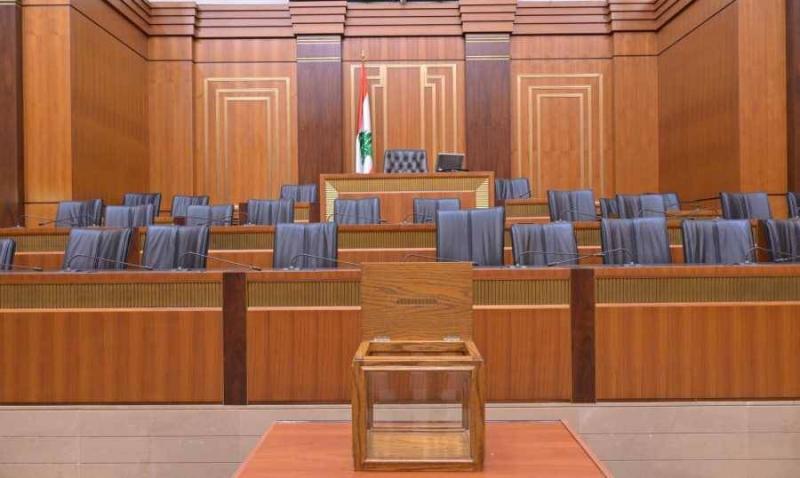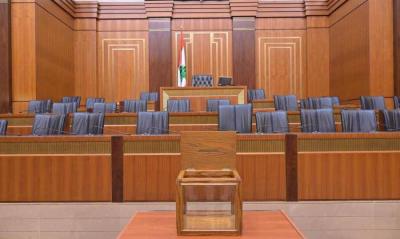The recent movements by the Quintet Committee concerning the situation in Lebanon, consisting of the United States, France, Saudi Arabia, Egypt, and Qatar, are based on several factors that allow for hope in revitalizing its efforts to elect a new president, as stated in "Nidaa al-Watan." While members of the committee hope to elect a president within the next two months, one of the factors energizing the quintet’s work, according to diplomatic circles within the group, is the heightened interest from one of its historically significant members with respect to Lebanon, namely Saudi Arabia. The dramatic and dangerous developments in the region, due to the Israeli war on Gaza, are likely a primary reason for Riyadh's renewed interest in ending the prolonged presidential vacancy in Lebanon.
Information on the Quintet’s clear movements is visible through the notable activity of Saudi Ambassador Walid Bukhari, the continuous meetings held by French Ambassador Hervé Magro with various parties, and the visits by Egyptian Ambassador Alaa Moussa, indicating a "new dynamic" related to the five nations preparing to propose a new approach to encourage Lebanese parties to resolve the presidential vacancy.
While awaiting the development of this approach, various diplomatic circles inform "Nidaa al-Watan" of the following:
1 - The postponement of the meeting of the ambassadors of the five countries with Parliament Speaker Nabih Berri yesterday was due to practical reasons, as the U.S. embassy in Beirut preferred that the five ambassadors meet before consulting with Berri to determine the unified stance. There are no disagreements among the Quintet members.
2 - A meeting of officials from the five countries is set to occur with French presidential envoy Jean-Yves Le Drian at the beginning of next month to determine the components of the new approach that will be adopted to encourage Lebanese factions to expedite the presidential election. The proposed venue for this meeting is Riyadh until further notice.
3 - Claims about the approach addressing the specifications of the next president are unfounded, as this aspect was exhausted in Le Drian’s previous visits, both before and after his appointment as a presidential envoy.
4 - While diplomatic sources repetitively mention that the five countries will not impose names or candidates for the presidency, one group member indicates that there is a near consensus among Lebanese on moving toward a third candidate. Even Speaker Berri, when he stated that former MP Sleiman Frangieh is the only candidate in the arena, previously expressed a willingness to consider a third option.
5 - The approach includes linking the presidential election with determining what follows in terms of entering a phase of structural and economic reforms, whether through an agreement with the International Monetary Fund or through improving the current dysfunctional system. Assistance to Lebanon, as is well-known, is conditional on implementing reforms, with Saudi Arabia being one of the most insistent nations on this matter.
6 - Le Drian preceded the quintet meeting with a visit to Riyadh last Thursday, followed by Doha the next day, to agree on the necessity of advancing the presidential file in Lebanon. The timing of the quintet meeting will depend on further discussions among the representatives of the three countries who may consult or meet again early next month.
7 - Media speculations in Beirut regarding Iran's inclusion in the Quintet, which arose following Iranian Ambassador in Beirut Mohsen Baharvand's visit to Ambassador Bukhari, are unfounded.
8 - Le Drian is operating concerning Lebanon with two priorities: reducing escalation on the southern front to avoid the war expanding, in preparation for an agreement to implement UN Resolution 1701, and ending the presidential vacancy independently of any other issue, without linking the two matters. Regarding the southern de-escalation, Paris continues to communicate its opposition to Israel’s military actions against Lebanon. This was the objective of the visit by French Armed Forces Minister Sébastien Lecornu to Tel Aviv the day before yesterday. France believes that the international resolution encompasses solutions for all aspects of the problem.
9 - The same diplomatic circles urge Lebanese parties not to wager or link any hypothetical discussions between the United States and Iran to the presidency in Lebanon, expressing disbelief in this type of speculation, especially since the dialogues between the two countries are more complicated than the Lebanese issue, in addition to the fact that no one knows what is occurring between them regarding other contentious files.




